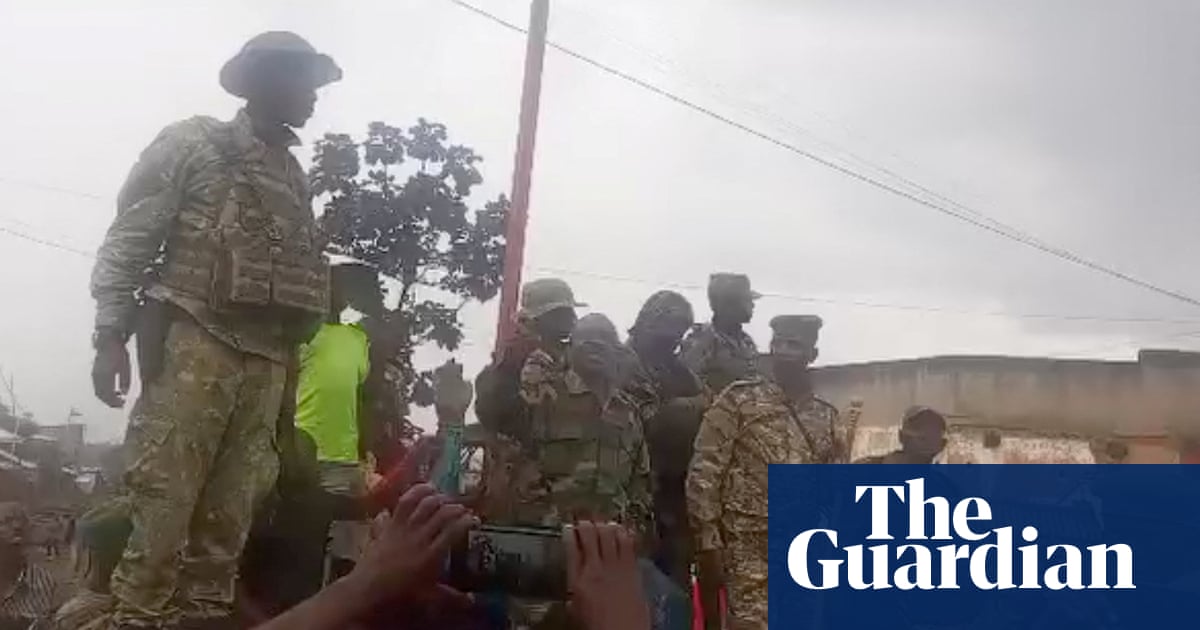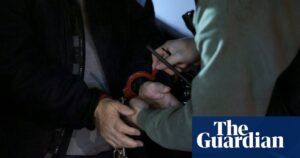
Rebels from the Rwandan-backed M23 group have seized the strategically important airport serving Bukavu, the capital of South Kivu province in the Democratic Republic of the Congo, following a rapid advance south in recent days.
The airport in the town of Kavumu, where Congolese troops had been positioned, is the last military obstacle to the rebels before Bukavu, a city of about a million people 17 miles (27km) to the south.
The airport’s fall, which was reported by Reuters and Agence France-Presse quoting security and humanitarian sources, has prompted fears of an imminent push on the city itself. Last month the rebels took Goma, the provincial capital of North Kivu, in a similar lightning offensive.
On Thursday the group captured Kabamba and the commercial centre of Katana as they advanced south along the N2 road. “M23 soldiers are blocking the road and are heading towards Kavumu – they already have control of Katana,” a resident told Reuters.
Airport employees said it had been emptied and in effect closed, with Congolese forces having removed an aircraft and other equipment. Troops were seen heading back to Bukavu in military trucks and on motorbikes laden with mattresses and other belongings.
Bukavu previously fell to soldiers who deserted the Congolese army in 2004 and the capture of the city would in effect give the M23 total control of the Lake Kivu area.
Corneille Nangaa, the head of the Congo River Alliance, a coalition of rebel groups that includes M23, said militias had been attacked and were defending themselves.
Congo’s president, Félix Tshisekedi, travelled to Germany to attend the Munich Security Conference on Friday as he seeks international support to end the conflict in eastern DRC.
He is not attending this weekend’s annual African Union summit in the Ethiopian capital, Addis Ababa, which is focused on efforts to halt the conflict, with the prime minister, Judith Suminwa Tuluka, taking his place.
Fighting has raged in eastern DRC for the last three years, but the recent surge in violence has prompted international calls for de-escalation and worsened an already dire humanitarian situation. The fighting has destroyed 70,000 emergency shelters around Goma and Minova in South Kivu, leaving 350,000 internally displaced people without shelter, according to the UN.
M23 is the latest in a string of ethnic Tutsi-led insurgent groups that have operated in the mineral-rich eastern DRC since a 2003 deal was meant to end wars that had killed 6 million people, mostly from hunger and disease. The group is backed by Rwanda, which says its primary interest is to eradicate fighters linked to the 1994 genocide. The Congolese government and several UN reports say in fact Rwanda is using the group as a means to extract and then export valuable minerals for use in products such as mobile phones.
The fighting has roped in armies of many countries from within and outside the continent, including those that contribute to a UN peacekeeping mission. Canada announced this week it had withdrawn its military personnel from the force, citing “increasingly perilous security conditions” in Goma.
On Thursday a popular Congolese singer was killed in the city while making a music video. The body of Delphin Katembo Vinywasiki, popularly known by his stage name Delcat Idengo, was found along a road near Kilijiwe district in northern Goma in the afternoon, with witnesses saying he died on the spot after being shot in the head.
Social media images showed the body of Vinywasiki, dressed in military trousers for the video shoot, lying on the ground.
Vinywasiki, whose songs often criticised conflict and human rights violations in DRC, was one of hundreds of prisoners who broke out of a prison in Goma during the M23 advance last month. He had been incarcerated for allegedly inciting people to arm themselves and force UN peacekeepers out of the country and was awaiting trial.
The circumstances around the singer’s death are unclear. Patrick Muyaya, a DRC government spokesperson, condemned the killing, which he described as abominable. “Neither horror, nor terror, and even less the untimely resort to arms against innocent civilians will be able to extinguish the flame of resistance in Goma and throughout the country,” he wrote on X.
Reuters and Agence France-Presse contributed to this report
Source: theguardian.com


















